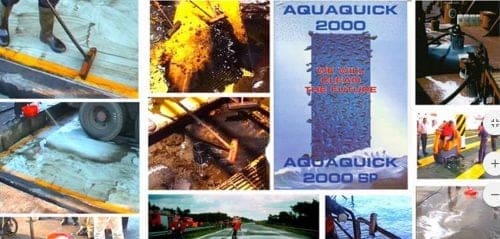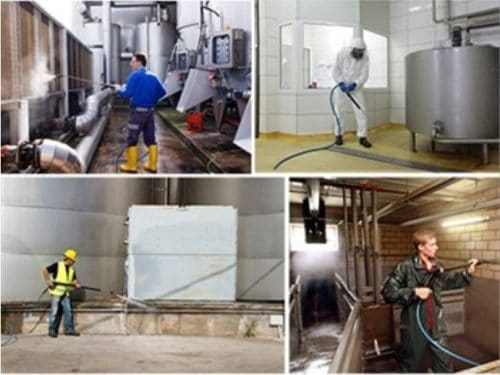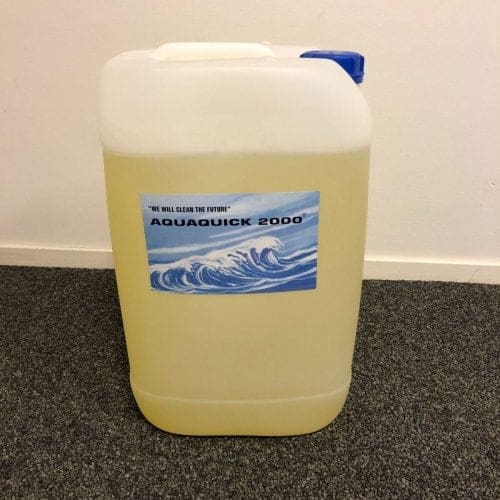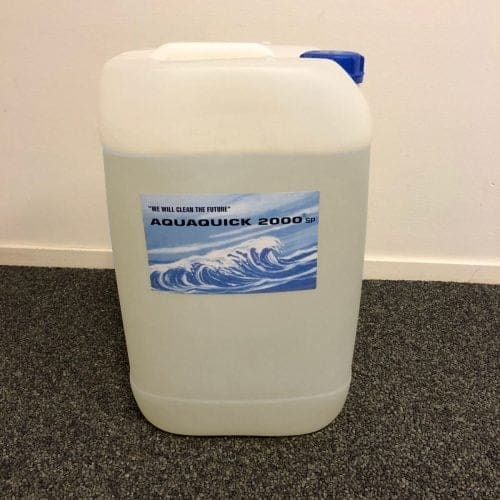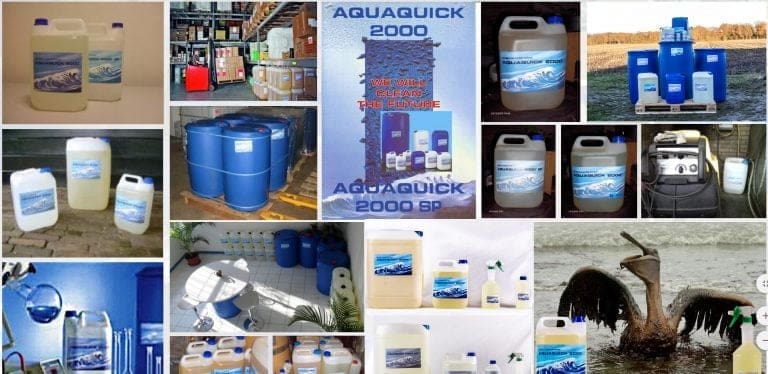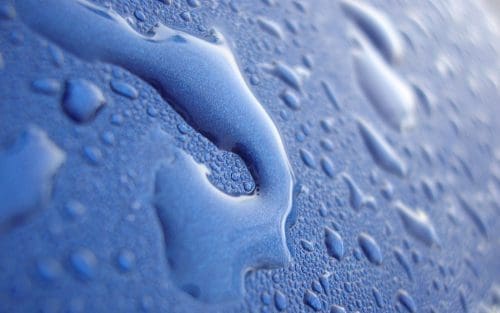Keeping your car in excellent shape requires more than just routine oil changes and tire rotations. Many car owners overlook the importance of maintaining a clean engine. But do car engines need to be cleaned, and how often? Understanding the benefits of cleaning your engine and how it impacts your car’s performance can save you time and money in the long run. In this article, we’ll explore why engine cleaning is essential, signs that indicate your engine needs attention, and the best methods for getting the job done right.
Why Is Engine Cleaning Important?
Cleaning your car engine might not be at the top of your maintenance checklist, but it should be. A clean engine can improve the overall performance of your vehicle, prevent overheating, and reduce the risk of expensive repairs. Whether you’re driving through dusty roads or city streets, your engine is constantly exposed to dirt, grime, and contaminants that can affect its function. Let’s look at some of the specific reasons why keeping your engine clean is so crucial.
Prevents Overheating
Overheating is one of the most common causes of engine failure. Dirt and grime can accumulate around the engine, blocking airflow and causing the engine to run at higher temperatures. By cleaning your engine, you allow proper ventilation, reducing the risk of overheating, especially in hot weather or heavy traffic conditions. A clean engine can effectively dissipate heat, keeping all components cool and functioning properly.
Improves Performance
When dirt and debris clog your engine’s components, it has to work harder to perform at the same level. This not only reduces fuel efficiency but also puts extra strain on the engine, leading to potential long-term damage. Cleaning the engine ensures that all parts are working smoothly, improving your car’s performance. In the end, regular cleaning can help maintain your car’s optimal fuel efficiency and horsepower.
Increases Lifespan
The longevity of your vehicle largely depends on how well you maintain it. A dirty engine is prone to premature wear and tear as dirt particles cause abrasions on delicate parts. Regular engine cleaning can significantly extend your engine’s lifespan by preventing the buildup of contaminants that lead to corrosion and damage over time. Proper maintenance, including cleaning, will keep your engine running longer and more efficiently.
Enhances Safety
Many car owners don’t realize that a dirty engine can actually be dangerous. Oil leaks combined with built-up grime can become a fire hazard under the hood. By keeping your engine clean, you reduce the risk of fires caused by oil and grease igniting. Regular inspections and cleaning not only improve your car’s performance but also enhance the overall safety of your vehicle.
Signs Your Car Engine Needs Cleaning
While routine engine cleaning is essential, how do you know when your car engine specifically needs attention? Many drivers only notice problems once they’ve escalated, leading to costly repairs. To avoid this, it’s important to be aware of the signs that your engine might be overdue for a clean. By paying attention to these indicators, you can prevent minor issues from becoming major headaches.
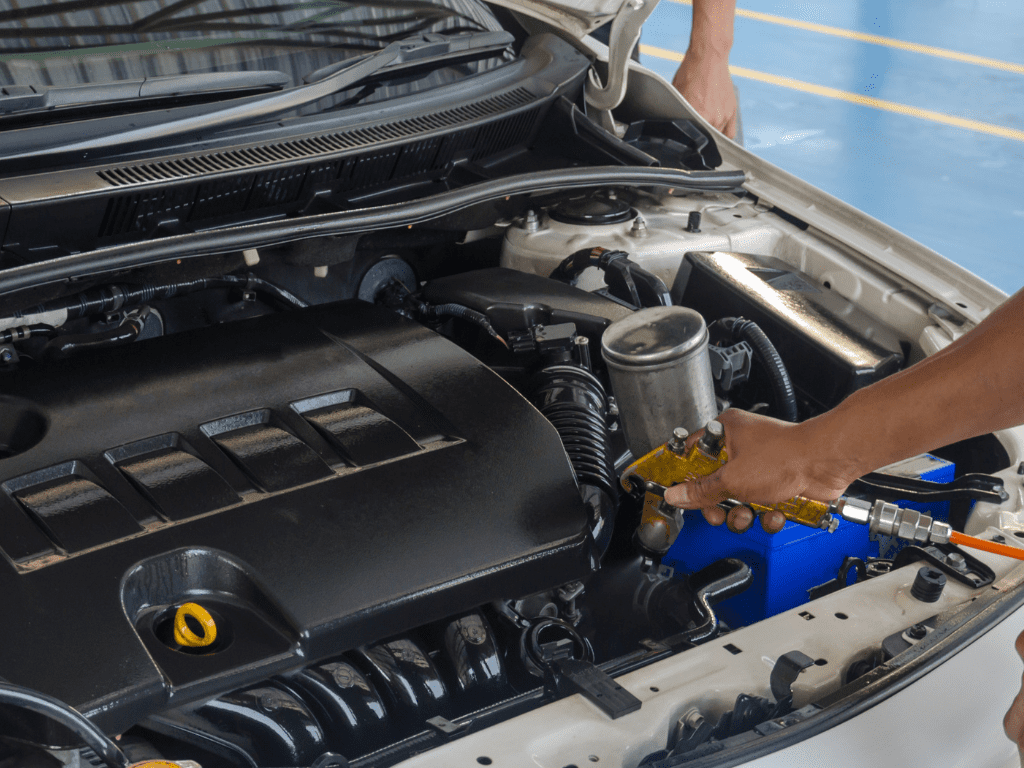
Oil Leaks
One of the most obvious signs that your engine needs cleaning is oil leaks. If you spot puddles of oil under your car or notice a drop in your oil levels, it’s time to check your engine. Dirt and grime buildup can cause seals to fail, leading to leaks. Cleaning your engine can help you detect these problems early and address them before they become serious.
Decreased Performance
If you’ve noticed that your car isn’t accelerating as quickly or your fuel efficiency has dropped, a dirty engine might be to blame. Grime can obstruct airflow, causing your engine to struggle to perform. A thorough cleaning can restore your vehicle’s performance, allowing it to run as smoothly as it did when it was new.
Strange Noises
Engines naturally make noise, but if you hear unusual sounds like knocking or rattling, it could be a sign that dirt is interfering with your engine’s components. Friction caused by debris between moving parts can create these sounds, and a good engine cleaning can resolve the issue. Regular maintenance will ensure that dirt doesn’t cause long-term damage to your engine.
Warning Lights
Modern cars are equipped with sensors that detect various engine issues. If your check engine light comes on, it could be related to dirt or grease buildup affecting engine performance. While a warning light doesn’t always mean a dirty engine, it’s a good reason to check under the hood. Cleaning your engine can help you catch problems early and keep your car running smoothly.
Methods for Cleaning Your Engine
Now that we’ve established the importance of keeping your engine clean and the signs that indicate it’s time for a cleanup, let’s dive into the different methods of cleaning. Whether you choose to do it yourself or seek professional help, there are several options available to suit your needs and budget. Engine cleaning doesn’t have to be complicated, but it does require the right approach to avoid causing damage.
DIY Engine Cleaning
Cleaning your engine yourself is an affordable and effective option if you’re comfortable working under the hood. A DIY approach requires a few simple tools and the right cleaning products. Here’s a step-by-step guide to help you get started:
- Preparation: First, make sure the engine is cool before you begin. Gather a degreaser, a bucket of water, brushes, and protective gear such as gloves and goggles.
- Cover Sensitive Parts: Use plastic bags to protect components like the air intake, battery, and electrical connections. This will prevent water from damaging these parts during the cleaning process.
- Apply Degreaser: Spray the degreaser liberally on the engine’s surfaces. Allow it to sit for a few minutes to break down stubborn grease and dirt.
- Scrub: Use a brush to scrub away dirt, focusing on hard-to-reach areas. This ensures that even the tight spaces are free from grime.
- Rinse: Gently rinse the engine with a light stream of water. Avoid using high-pressure water as it can damage sensitive components.
- Dry: Let the engine air dry completely before starting the car.
Professional Engine Cleaning
If you’re not comfortable cleaning your engine yourself, professional engine cleaning services are available. Experts use specialized equipment and cleaning agents to ensure a thorough job without risking damage to your engine. They can reach areas that are difficult to access and provide a more comprehensive clean, particularly for heavily soiled engines.
Use of Specialized Products
To achieve the best results, it’s important to use high-quality cleaning products. For example, AQUAQUICK 2000 is an excellent product that works to dissolve tough grease and grime. It’s eco-friendly and designed to clean engines effectively, ensuring optimal performance and longevity. By using the right products, you can enhance the cleaning process and protect your engine from future damage.
Introducing AQUAQUICK: The Ultimate Engine Cleaning Solution
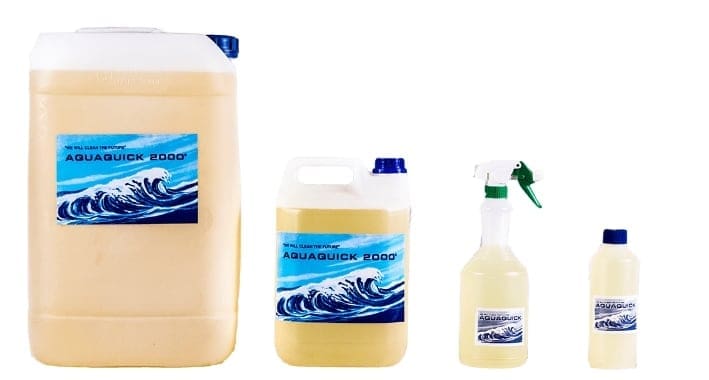
What is AQUAQUICK?
AQUAQUICK is a high-performance cleaning product designed specifically for automotive applications. Formulated to tackle tough grease and grime, it ensures that your engine remains in optimal condition while enhancing overall performance.
Benefits of Using AQUAQUICK
- Powerful Cleaning Action
AQUAQUICK effectively breaks down and removes built-up dirt, grease, and oil, making engine cleaning more efficient and hassle-free. - Safe for Engine Components
Unlike harsh chemicals that can damage sensitive engine parts, AQUAQUICK is safe to use on various materials found in your engine compartment. - Improved Performance
By maintaining a clean engine with AQUAQUICK, you can experience better fuel efficiency and smoother operation, contributing to a longer engine lifespan.
How to Use AQUAQUICK for Engine Cleaning
- Preparation: Ensure the engine is cool and cover sensitive components as needed.
- Application: Spray AQUAQUICK generously onto dirty areas of the engine, allowing it to penetrate for a few minutes.
- Scrub: Use a soft brush to scrub away stubborn deposits.
- Rinse: Rinse with water to remove any residue, leaving your engine looking clean and fresh.
Why Choose AQUAQUICK Over Other Products?
AQUAQUICK stands out from other cleaning products due to its unique formulation and proven effectiveness. Users report noticeable improvements in engine cleanliness and performance, making it a preferred choice for both DIY enthusiasts and professional mechanics alike.
Best Practices for Engine Maintenance
In addition to regular cleaning, there are other best practices that can help you maintain your engine’s health. These include routine inspections, scheduling professional cleanings, and using high-quality products. Following these guidelines will ensure that your car runs smoothly and lasts longer.
Regular Inspections
Inspecting your engine regularly allows you to catch issues before they become major problems. Look for signs of dirt buildup, leaks, or unusual noises. If you notice any of these signs, it might be time to clean your engine. Regular inspections ensure that you stay on top of your car’s maintenance needs and keep it running at its best.
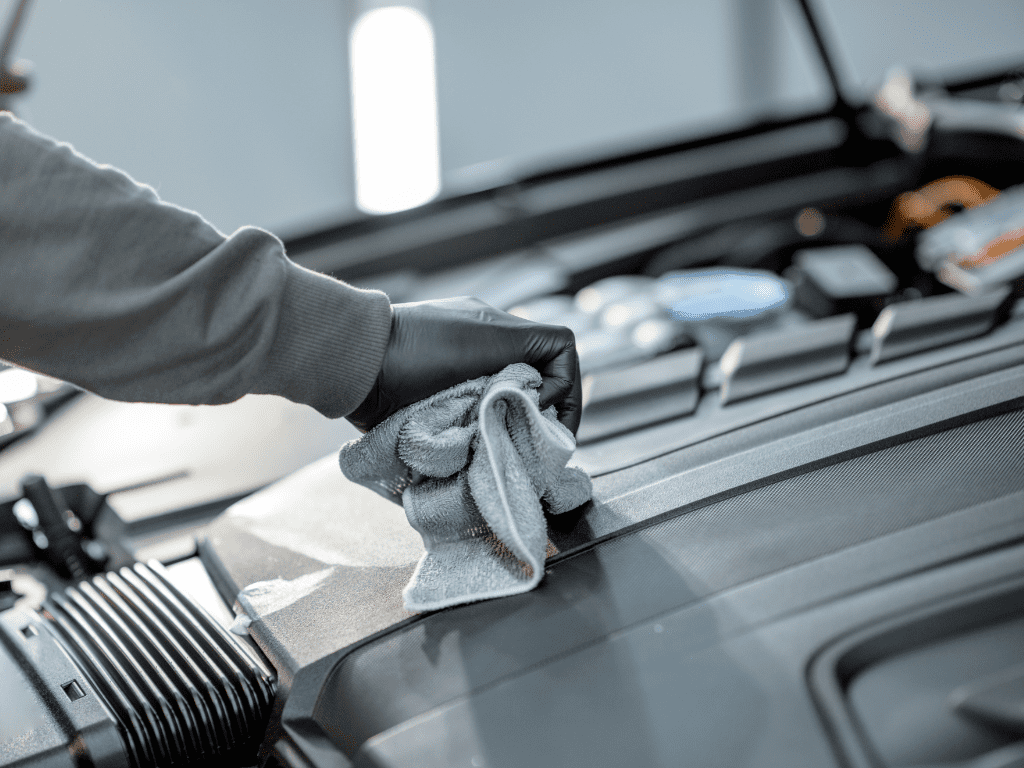
Schedule Professional Cleanings
Even if you prefer DIY maintenance, scheduling a professional engine cleaning once or twice a year can be beneficial. Professionals have the tools and expertise to provide a deeper clean, especially if your car has been exposed to harsh conditions. A professional cleaning can complement your regular maintenance efforts and extend the life of your engine.
Use Quality Products
Choosing the right cleaning products is critical for effective engine maintenance. Using subpar cleaners can do more harm than good, while high-quality products like AQUAQUICK 2000 ensure that your engine is thoroughly cleaned without damaging sensitive components. Always opt for products that are safe for your engine and designed for automotive use.
Follow Manufacturer Recommendations
Each vehicle is unique, and your manufacturer will have specific guidelines for engine maintenance. Follow their recommendations regarding cleaning frequency, products to use, and any special procedures. Sticking to these guidelines will help you keep your engine in top condition.
Conclusion
So, do car engines need to be cleaned? Absolutely. Regular engine cleaning is vital for maintaining performance, preventing overheating, and extending the life of your car. Whether you choose to clean your engine yourself or rely on professional services, the key is consistency. By making engine cleaning a part of your regular maintenance routine and using quality products like AQUAQUICK 2000, you can avoid costly repairs and keep your vehicle running smoothly.
Don’t wait for warning lights or performance issues to start your engine cleaning routine. Stay ahead of potential problems by keeping your engine clean, and enjoy the benefits of a car that performs efficiently and lasts longer.

